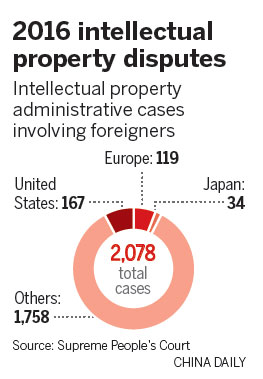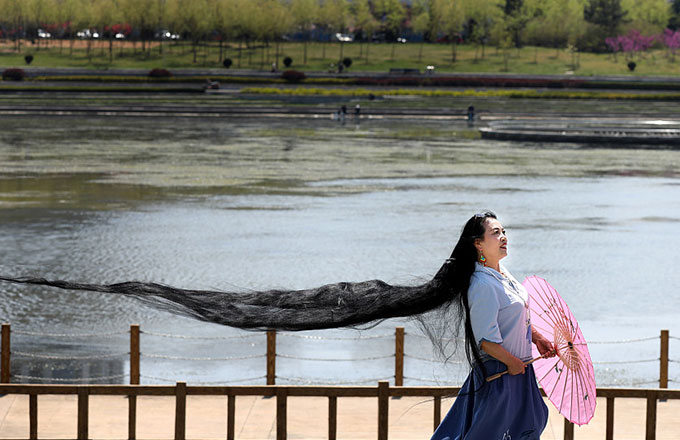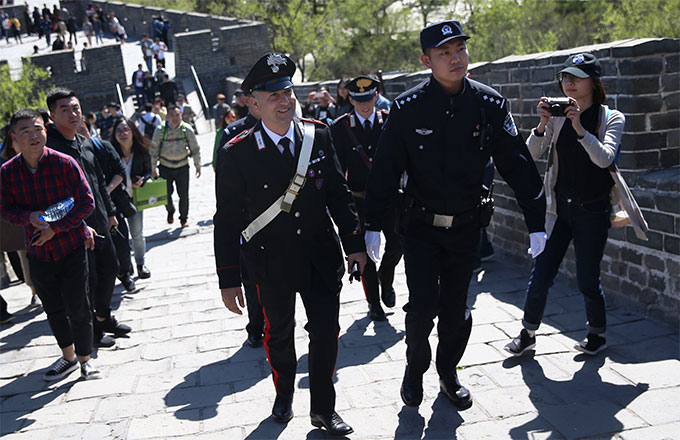Trademark protections needed, judge says
Courts should fully protect brands — domestic and foreign — by cracking down on those who register trademarks with "malicious intent", a senior judge said on Monday.
Song Xiaoming, head of the Supreme People's Court's Intellectual Property Tribunal, said the practice by some individuals and companies to register popular names, such as those of celebrities, as trademarks has disrupted the system and eroded trust.
"What the registrants want is to gain profit by transferring the registered trademarks at a high price or to ask for a big compensation through lawsuits," he said in an exclusive interview ahead of World Intellectual Property Day on Wednesday.
"We must say ‘no' for those who rush registration for trademarks with bad intention, as honesty and credibility have always been the principles when we handle trademark cases."

Last year, lower courts — district and intermediate — concluded 1,667 civil IP cases and 2,078 administrative IP cases involving foreigners, up from 1,429 civil and 1,127 administrative cases in 2012, according to data released by the Supreme People's Court.
Song said the foreign-related proportion has always stayed high in administrative cases, "and the top concern among foreigners is the malicious trademark registration".
To combat malicious registrations, a guideline issued by the top court and effective on March 1 has made priorities of the principles of honesty and credibility in trademark registrations.
Meanwhile, under the Trademark Law revised in 2013, people who find someone rush registration to their trademarks can request the Trademark Review and Adjudication Board of the State Administration for Industry and Commerce to declare them invalid within five years from the date of the registration.
"However, this time limit doesn't apply to well-known brands," and they can file a lawsuit at any time, Song said.
In addition, the top court also clarifies rules against the malicious registration by opening its door to hear foreign-related IP disputes, he said, taking a case involving US basketball superstar Michael Jordan as an example.
In April 2016, a series of administrative cases involving Jordan, Chinese company Qiaodan Sports and the Trademark Review and Adjudication Board was publicly heard at the top court.
All documents during the trials, controversies in the cases as well as the final results were open to the public, according to Song.
"Our aim is to help people know how Chinese courts tackle cases of malicious trademarks in a transparent or visible way," Song said. "No matter where IP-rights owners are from, the equal protection is a must."
Legal experts applauded the courts' increasing strength against malicious registrations, but said the problem should be solved by joint efforts.
Liu Xiaochun, a legal researcher at China Youth University of Political Studies, said the malicious trademark issue points to a loose examination at the time of registrations, suggesting the government build a blacklist to better monitor trademark applications.
Du Ying, a law professor at Central University of Finance and Economics, echoed Liu, saying closer cooperation should be increased between governmental departments and e-commerce platforms, as online trade has boomed.

























